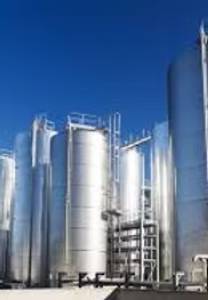Description
Chemical Industries: A Comprehensive Overview
Chemical industries encompass a vast and diverse range of activities, all centered around the transformation of raw materials into valuable chemical products. From the production of basic chemicals like acids and alkalis to the synthesis of complex pharmaceuticals and advanced materials, this sector plays a crucial role in modern life, touching nearly every aspect of our society.
This description provides a broad overview of the chemical industries, highlighting key segments, processes, and applications.
Key Segments:
- Basic Chemicals (Commodity Chemicals): These are high-volume, low-cost chemicals serving as building blocks for other products. Examples include:
- Inorganic Chemicals: Acids (sulfuric, nitric, phosphoric), alkalis (sodium hydroxide, potassium hydroxide), ammonia, chlorine, and various salts.
- Organic Chemicals: Ethylene, propylene, benzene, methanol, and other hydrocarbons forming the foundation for countless downstream applications.
- Specialty Chemicals: These are high-value, lower-volume chemicals with specific applications in diverse industries. Examples include:
- Coatings & Resins: Paints, adhesives, sealants, and polymers used in various construction, automotive, and consumer applications.
- Agricultural Chemicals (Agrochemicals): Fertilizers, pesticides, herbicides, and other products enhancing crop yields and protecting plants.
- Pharmaceuticals & Biochemicals: Medicines, vaccines, diagnostic reagents, and other products crucial for healthcare.
- Personal Care & Cosmetics: Soaps, detergents, shampoos, cosmetics, and other products for personal hygiene and beauty.
- Electronic Chemicals: Materials used in the manufacturing of semiconductors, displays, and other electronic components.
- Petrochemicals: These are chemicals derived from petroleum and natural gas, forming a crucial link between the energy and chemical industries. Many basic and specialty chemicals originate from petrochemical feedstocks.
- Polymer & Plastics: A massive segment involving the production of plastics, synthetic fibers, and elastomers used in countless applications, from packaging and construction to automotive and medical devices.
Manufacturing Processes:
Chemical production relies on a diverse array of processes, including:
- Batch Processing: Small-scale production of specialty chemicals, often involving complex reaction sequences.
- Continuous Processing: Large-scale production of commodity chemicals, employing continuous flow reactors for higher efficiency.
- Biotechnology: Utilizing biological systems and organisms to produce chemicals and materials, gaining importance in sustainable and green chemistry.
- Catalysis: Employing catalysts to accelerate chemical reactions, improving efficiency and reducing energy consumption.
- Separation & Purification: Techniques like distillation, filtration, and chromatography are essential for isolating and purifying desired products.
Applications:
The products of the chemical industries are ubiquitous, impacting virtually all aspects of modern society:
- Agriculture: Enhancing crop yields, protecting plants from pests and diseases.
- Construction: Providing materials for buildings, roads, and infrastructure.
- Energy: Producing fuels, lubricants, and other energy-related products.
- Healthcare: Manufacturing pharmaceuticals, medical devices, and diagnostic tools.
- Manufacturing: Supplying materials and chemicals for various manufacturing processes.
- Transportation: Producing fuels, lubricants, and materials for vehicles.
Challenges and Opportunities:
The chemical industry faces significant challenges, including:
- Sustainability: Reducing environmental impact through green chemistry and sustainable practices.
- Safety: Ensuring safe handling and disposal of hazardous chemicals.
- Regulation: Compliance with stringent environmental and safety regulations.
However, significant opportunities exist in areas such as:
- Bio-based chemicals: Developing sustainable alternatives to petroleum-based chemicals.
- Nanotechnology: Developing advanced materials with unique properties.
- Circular economy: Developing methods for recycling and reusing chemical products.
This overview highlights the vast scope and importance of the chemical industries. Its continued innovation and adaptation will be crucial for meeting the challenges and opportunities of the future.
